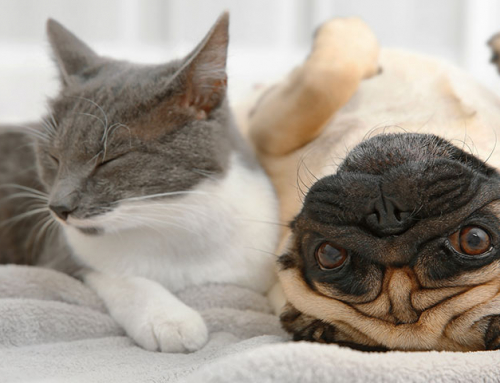“Tell me why my vet wants to run a urine culture when the urinalysis was normal?”
Boy, I’ve gotten this question several times this year! Running urine cultures is part of the “routine” tests your veterinarian will want to test on at least a yearly basis for a diabetic pet. Many internists suggest doing a urine culture on a diabetic pet twice yearly, even if you think your pet is well controlled.
A urine culture means obtaining urine in a sterile fashion (either by taking it directly from the urinary bladder or passing a sterile urinalysis catheter) and plating it on culture media. I bet you are suddenly having vague recollections from high school science class or college microbiology class about now! If something grows (meaning bacterial germs residing in the urine), we then compare the organism to a spectrum of antibiotics to see which will be most effective and which may not work at all.
Normally urine is an inhospitable and caustic place for bacteria to live. Really… Ew! However, if urine is dilute it doesn’t seem like such a rotten place for bacteria to reside, particularly if there is sugar in the urine. Free food for bacteria! A diabetic’s urine is party central for germs, even in a well controlled diabetic we will likely have some glucose in the urine and the sugar overwhelms the kidneys’ ability to make concentrated urine. This is one of the most common complications of diabetes: urinary tract infections. Urinary tract infections are also one of the most common causes of insulin resistance we see in pets.
You might think you would know if your pet had a urinary tract infection. You didn’t just fall off the turnip truck after all. Urinary tract infections typically present with accidents in the home and frequent urinations. However, with the dilute urine of diabetic pets, a urinary tract infection might slide under the radar on a routine urinalysis. Additionally, diabetic pets are often immunosuppressed relative to non-diabetics and may not mount the same inflammatory response in the urine as a non-diabetic.
Urine cultures are costly, usually at least twice what a typical urinalysis costs. In my own hospital I charge $90 to send urine to an outside lab for culture and antibiotic sensitivity testing. Some clinics charge up to $130 for this test. Because finances often play a big role in treatment plans, many owners decline cultures.
In my own hospital I get around this issue by having an in-hospital urine culture incubator. If I’m pretty sure some germ is growing in the urine I typically send urine directly to the lab for culture and sensitivity. However, if I think there is a fair chance the urine culture will be negative but I need to check to rule out an infectious cause (for example: newly diagnosed kidney failure patients, male cats with lower urinary tract disease, or a well- controlled diabetic) I usually do the urine culture in the incubator in my own laboratory.
I purchase the culture media and inoculate it with urine and place it in a warm incubator – the same temp as body temperature. I then check the sample for bacterial growth every day for 3 days. If something grows I then submit the culture media to the outside lab for identification of the germ and antibiotic sensitivity testing. For $25 I can practice good medicine, not have clients grumble at me for recommending a pricey urine culture and I can sleep at night knowing my Type-A medical habits remain intact. Again, the gold standards are treating my patient as if it were my own pet and treating clients as I would want my mother treated by another veterinarian. If my own pet was diabetic, I would run urine cultures twice a year.






HI
Joi…this article is extremely informative…now it makes sense. I never doubted the doctor doing a test/culture, in fact I encouraged it because Bucky ended up having a UTI…Vet kind of found it unusual because Bucky is a male! Oh well, he was treated and is better.
However, can you answer one thing? Maybe you know…
Every once in a while Bucky will have a HUGE accident like when he’s lying in the bed he just lets loose…it surprises even him I think, because he jumps off in haste.
Poor thing…I don’t know why this happens…normally we go out quite often for a pee especially after his meds. like every hour! no problem, I realize he is dealing with a lot. Heart, thyroid, cushings, diabetes, throwing clots, chronic pneumonia stuff, etc. plus the diabetes…he is a 11.5 year old Boston Terrier who is holding his own. Just would like your thoughts if you have the time…Thanks
It sounds like Bucky has lots of reasons to have to pee often if he has both diabetes and cushings. He may indeed surprise himself if he pees the bed! He may have been snoozing when the early warning signals from the stretch receptors in his bladder went off and he may just not have made it outside! 😉 Joi
Dr. Sutton-
I was wondering if you have ever treated a dog with polycythemia vera? I have a 7 yr old dachshund diagnosed with this she was started on hydroxyurea 350mg and is at 400mg now. I am being told that her RBC count isn’t decreasing and there is nothing they can do for her, Would you have any other suggestions as my vet does not have experience with this disease.
I have not personally treated this disease. You might consult with an internist. Many larger cities and all veterinary schools will have an internal medicine veterinarian available. Ask your doctor for a referral. Joi